Trump using daily crisis briefings to stay in the political spotlight
In the past 27 days, the president has held 26 White House briefings.
President Donald Trump’s raucous campaign rallies have come to a halt amid the pandemic, but he's found a way to stay in the political spotlight without ever having to leave the White House: the daily White House press briefing.
In the past 27 days, he's held 26 briefings, becoming a constant presence on television screens across the country as Americans hunker down at home, hungry for the latest information.
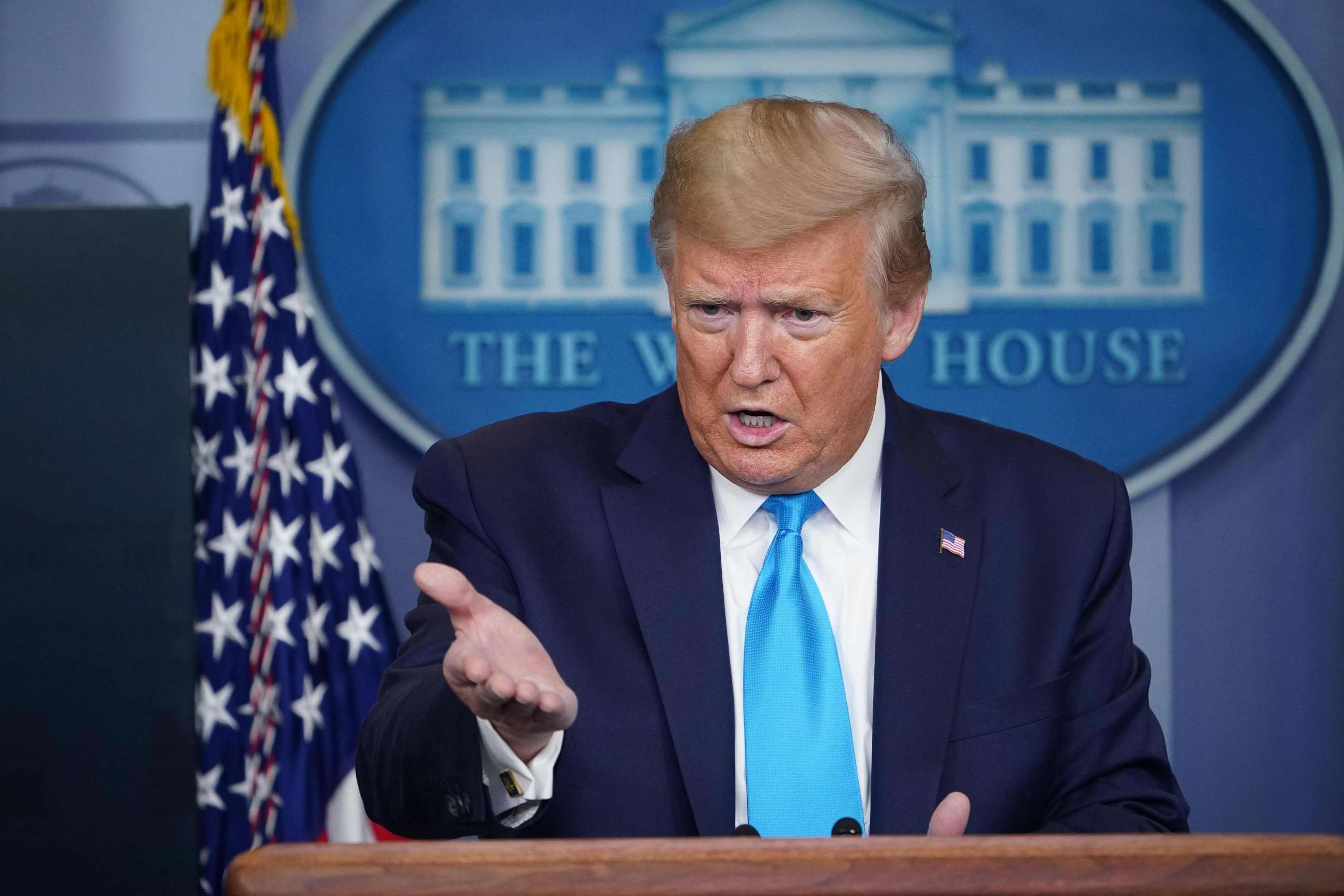
It is probably no coincidence that he appears each evening in prime television viewership time, in sessions often stretching longer than two hours as he seems to never tire of sparring with reporters questioning how he's handled the response.
“I don’t want to stand here for two hours and do this. But I think it’s important,” Trump said at one briefing last month. “We don’t want to answer two questions and leave. We want to answer your questions. That’s why we’re doing this for so long."
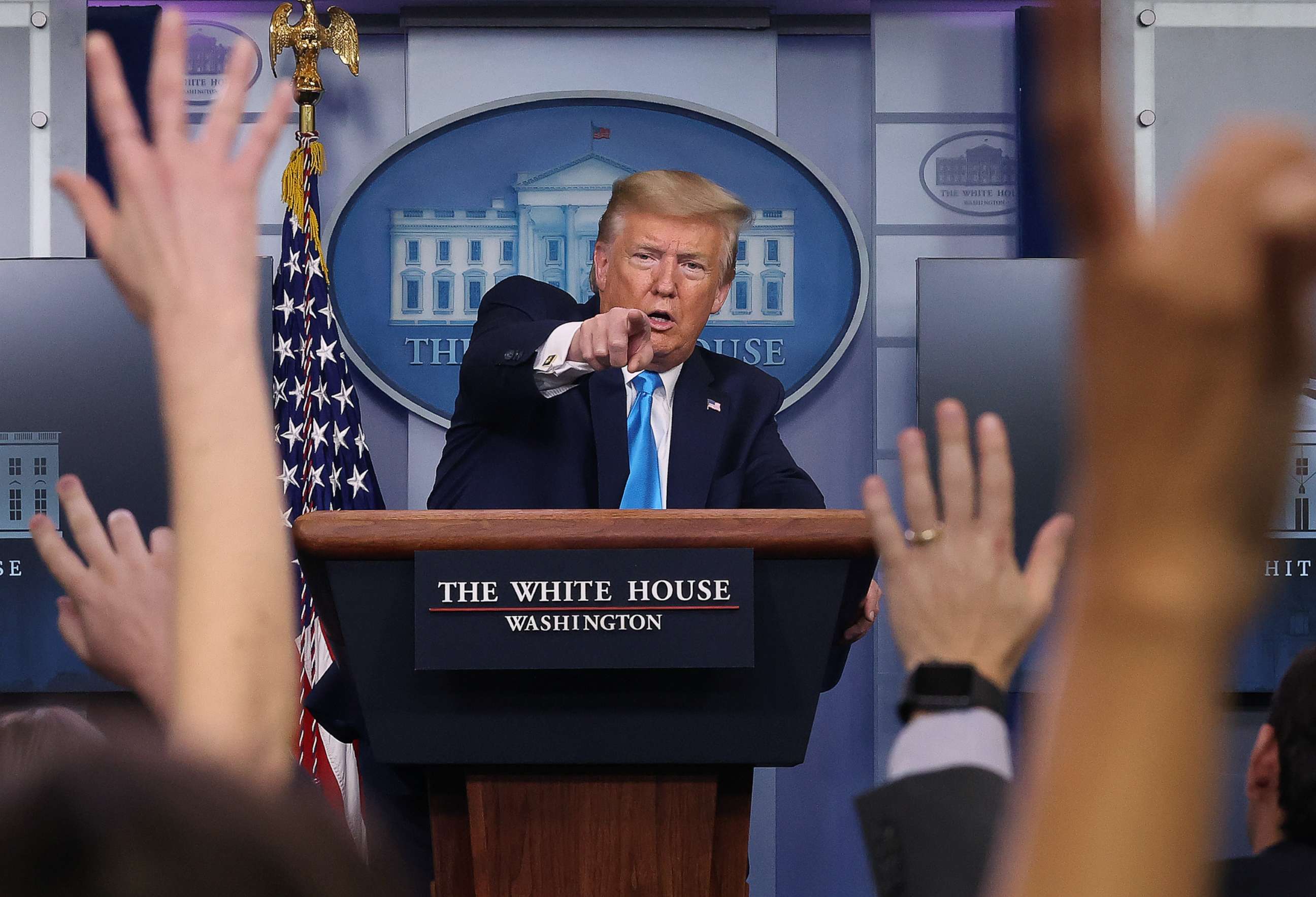
Tune into ABC at 1 p.m. ET and ABC News Live at 4 p.m. ET every weekday for special coverage of the novel coronavirus with the full ABC News team, including the latest news, context and analysis.
But in addition to providing valuable information to the American public amid political attacks and questionable claims, Trump has made no secret of the fact he views them as an opportunity to capture the country's attention -- bragging on Twitter that his briefings have been a “ratings hit.”
“The ratings are through the roof according to, of all sources, the Failing New York Times, “Monday Night Football, Bachelor Finale” type numbers,” Trump tweeted on Wednesday, blasting critics who argue that the briefings should not be broadcast live because he has, at times, been misleading -- or worse.
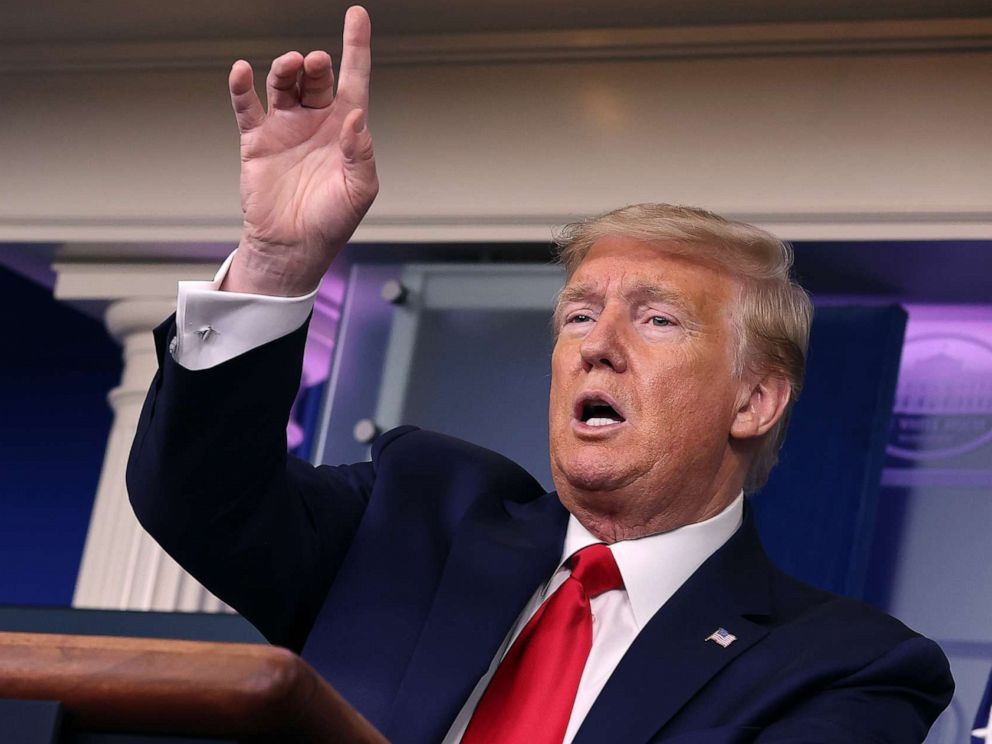
Over time, the news conferences have become increasingly devoid of actual news. Major developments that marked the briefings' early days have given way to Trump and Vice President Mike Pence often listing already-announced details made public hours, or even days, earlier.
Former Obama White House Communications Director Jen Psaki says the president has politicized what should be a forum for giving reliable information the public needs in a crisis.
“If Trump was really focused on how to best communicate to the country during a public health crisis, he would clearly step aside and let the health experts do the daily briefing. But his only focus is on rallying his troops and he is using this crisis to oversee a daily reality show often filled with dangerously inaccurate information.
“There may have been an initial bump in the polls from his use of the bully pulpit, but we are seeing that drop as the realities of his mishandling of the crisis including the death toll as well as the economic impact hit people,” Psaki said.
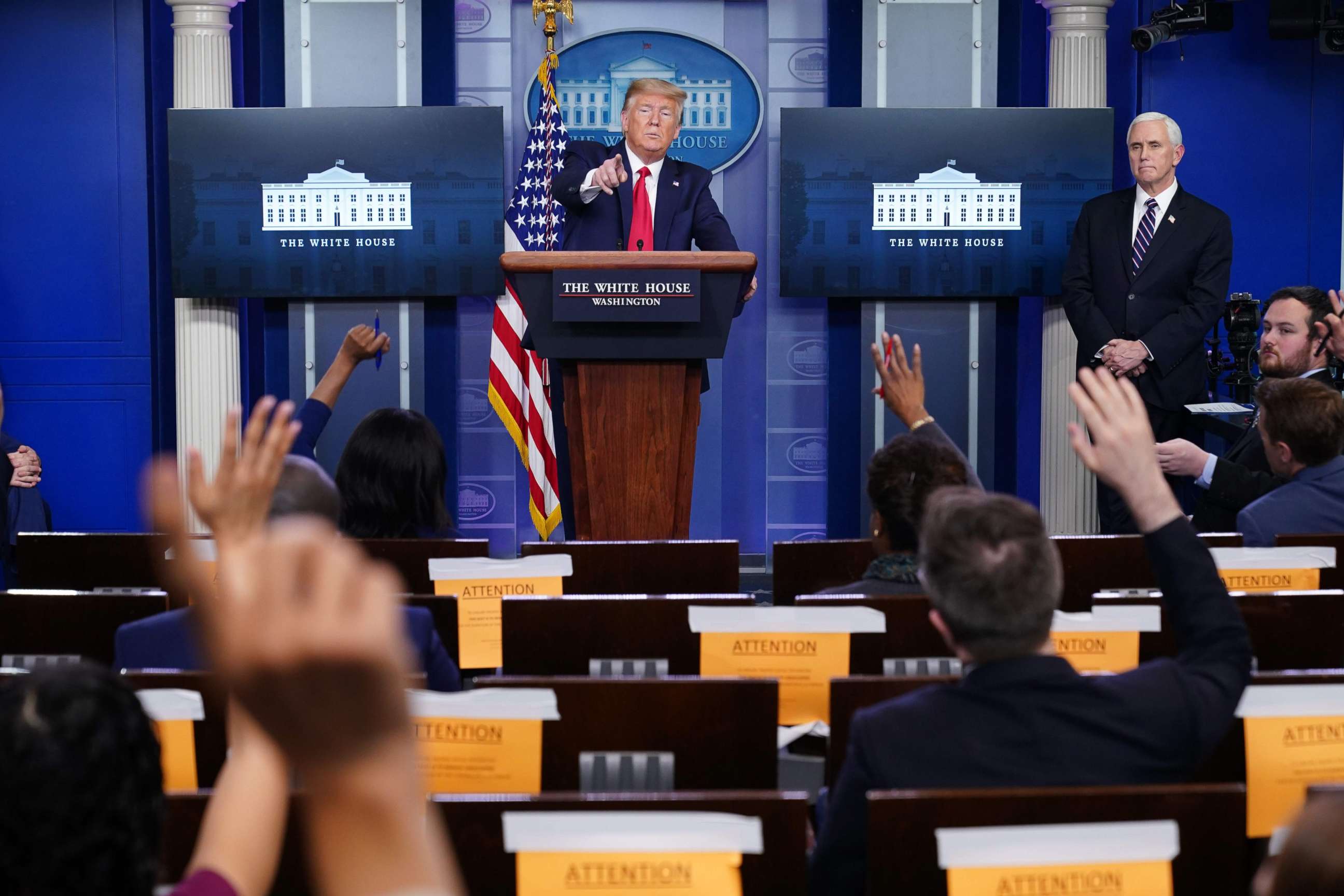
Former Democratic National Committee Chairman Howard Dean has urged his more than 150,000 Twitter followers to stop tuning into the briefings and said he told MSNBC he wouldn’t appear on the network's programs “as they were broadcasting Trump’s press conference.”
Former George W. Bush deputy press secretary Tony Fratto says that while extensive communication in a crisis is a good thing, “no one needs two-hour briefings.”
“Forty-five minutes into the briefings, I begin thinking everyone in the room has something else more important that they should be doing at that time -- doctors Birx and Fauci, especially,” Fratto said.
“I would separate the briefings, with a regular health briefing earlier in the afternoon, and then a White House briefing that is broader, and could include other members of the administration,” he said.
The briefings can get tense and awkward when the president’s own public health experts have to clarify or even correct something he's said.
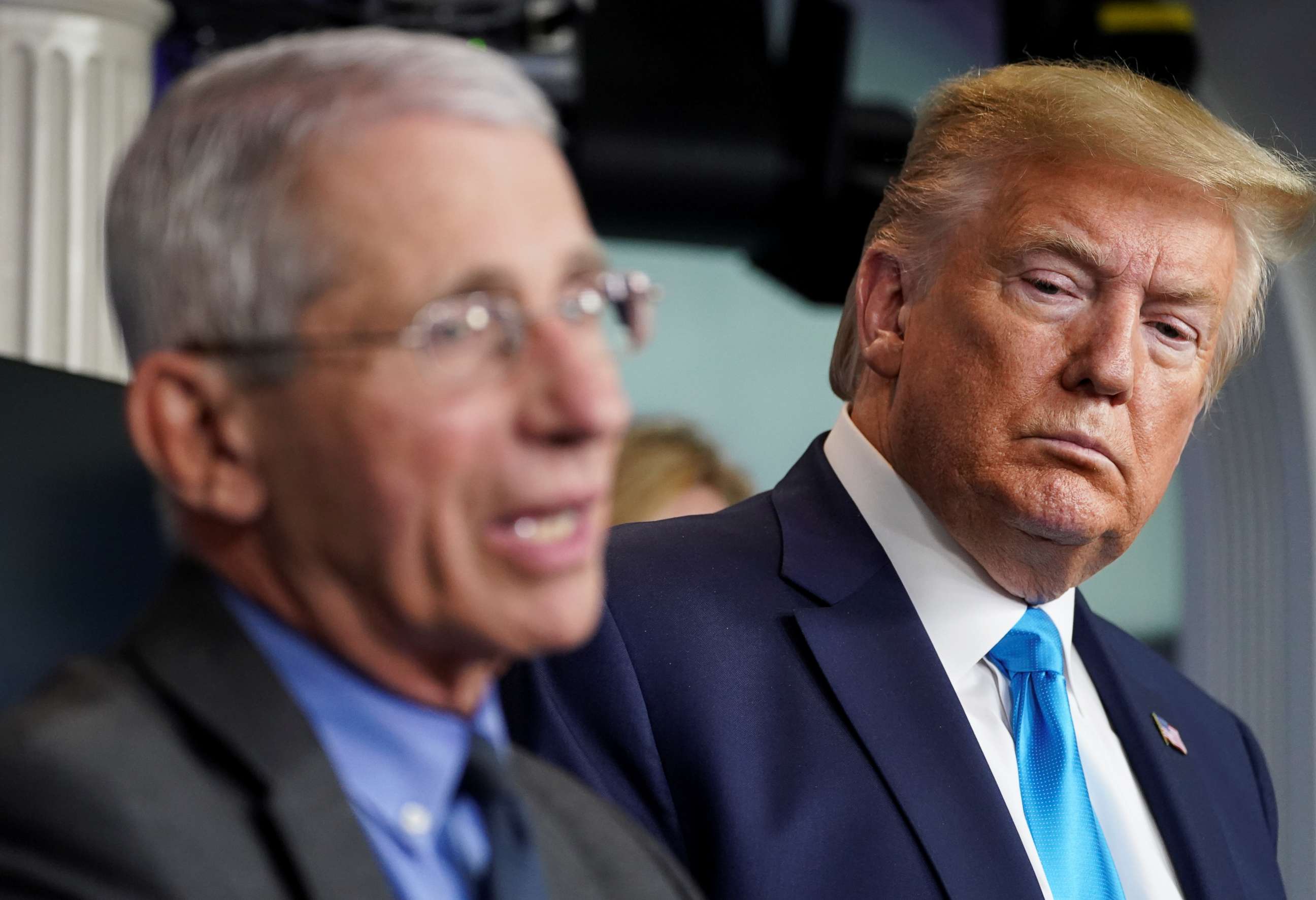
It even got to the point last Sunday that Trump tried to prevent that embarrassing scenario from playing out again.
After he continued to promote hydroxychloroquine as a promising treatment for COVID-19 -- despite the lack of evidence that what he calls a potential "game-changer" would be effective -- he blocked the nation’s top infectious disease expert, Dr. Anthony S. Fauci, an outspoken skeptic, from answering a reporter's question about his view.
“What do you have to lose?” Trump interjected, referring to using the drug on terminally ill patients.
"What do I know? I'm not a doctor. But I have common sense," Trump said Sunday. Yet, more Americans trust Fauci than they do him or Pence, according to a recent Monmouth University poll.
Asked which leaders frequently seen on television talking about COVID-19 they trust the most, Americans most frequently cited Fauci -- 35% named him -- compared to 20% citing Trump and just 10% naming Pence.
Other frequent briefers, Birx and U.S. Surgeon General Jerome Adams, were cited by 14% and 11% of those surveyed, respectively.
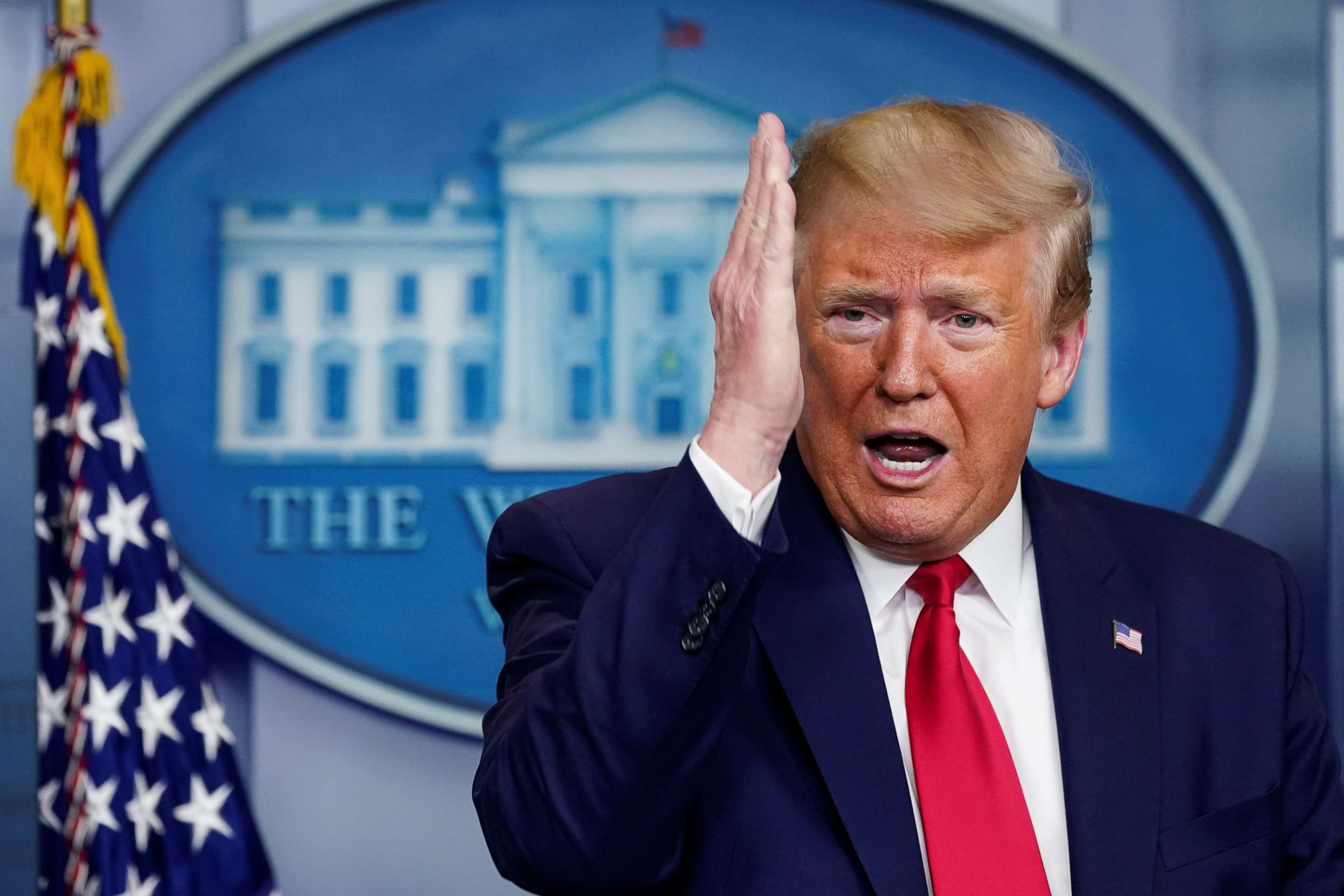
On Thursday, after the usually-friendly Wall Street Journal took him to task in an editorial headlined "Wasted Briefings," Trump, true to form, tweeted, "The Wall Street Journal always "forgets" to mention that the ratings for the White House Press briefings are "through the roof" (Monday Night Football, Bachelor Finale, according to @nytimes & is only way for me to escape the Fake News & get my views across. WSJ is Fake News!"
ABC News' Ben Gittleson contributed reporting.
What to know about coronavirus:
- How it started and how to protect yourself: coronavirus explained
- What to do if you have symptoms: coronavirus symptoms
- Tracking the spread in the US and Worldwide: coronavirus map




